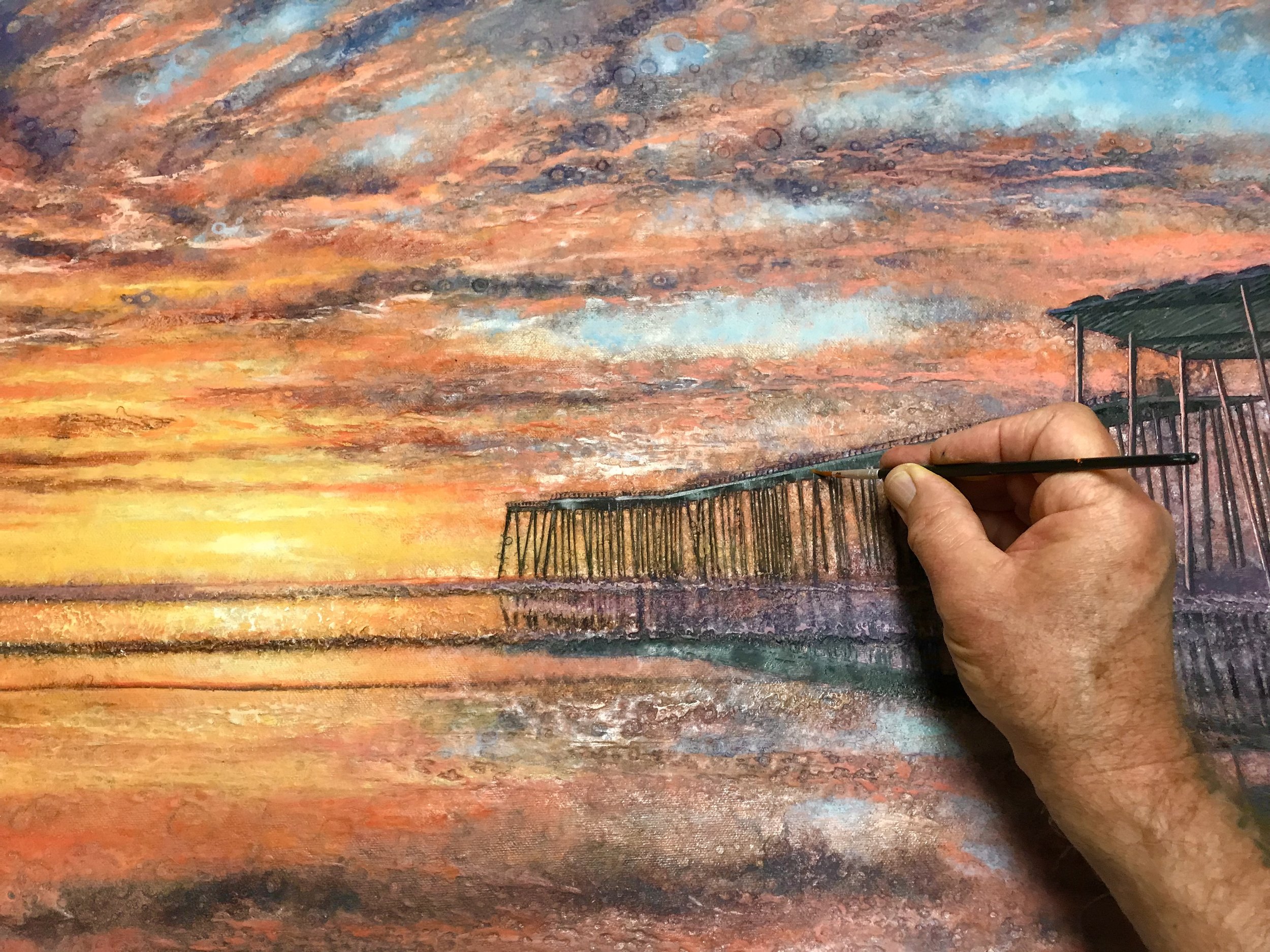What I do is typically done by myself. I’m an artist and I paint. But the WAY I do it involves regular contact with people who visit Asheville. That keeps me psychologically balanced I think! One of the great things about my business model is that I get to hear all sorts of questions from visitors. Some of them crack me up. Some of them test my patience. And some of them make me think.
One really good question I got a couple weeks ago was from a couple visiting from New Jersey. They love looking at artwork but I could tell they had no confidence in “judging” art, so I had a really great time explaining to them that like it or not, they DO judge art all the time and that that’s okay. That’s a topic for another day, but the question they asked was “Just because I like a painting, does that make it good art? What makes a piece of art “GOOD” art? Is it entirely subjective?”
It needs to adhere to the rules of the craft, or break them skillfully.
Oh, that’s such a great question. My answer took about thirty minutes to explain and I still only scratched the surface. What makes art “great” art IS subjective, but it’s also objective. That combination is what makes it tricky. What makes a painting a great painting is determined the same way as determining what makes a song a great piece of music; what makes a poem a great example of poetry, or what makes a rendition of Beef Wellington a perfect “Beef Wellington”. All art can be judged. I’m not encouraging people to be “judgmental”. I’m just saying that judging all these things is natural and we all do it and that that’s absolutely fine. But just because I personally like this chef or this poet or this musician or this artist does not make what they produce “great”, right? What is that standard something has to meet in order to considered great?
Well, in my opinion…
1) ATTENTION TO DETAIL. It needs to be well-crafted and that well-craftedness should be obvious. There needs to be that mystified “How’d they do that?” asked. Great skill level counts and will be obvious.
2) INNOVATIVE. It needs to display a new take. There is nothing new under the sun, that is true. But to be considered “great”, I think there needs to be something unique about it. Otherwise (even if it’s well done), if it’s just like the next song, poem, plate or painting, what’s the big deal about it? Why does it matter? There must be something that grabs attention. There needs to be some obvious imagination involved in its production.
3) RULES, RULES, RULES. It needs to adhere to the rules of the craft, or break them skillfully. Like it or not, there are rules to art. There are mathematical rules that determine pleasing proportions. There are spelling and punctuation rules used in writing. There are rules that dictate pleasing intervals of sound when one writes a piece of music. There are rules that dictate great or horrible results in cooking. Rules are everywhere. And they can be skillfully broken, but you really need to know those rules intimately, inside and out, before you know how and when to best break them.
The thing is, if there is artistic expression that adheres to these three points, people respond to it. You can’t help but respond to it. It creates pleasure.
At this point in my talk with my studio visitors, the gentleman said, “But when I go into an art museum, half the stuff there just looks like crap to me. I mean, my two year old could do a better job.” Yep. Sometimes I think that good artwork ends up on people’s walls. Artwork that can’t be sold (i.e. no one wants it in their home) ends up in an art museum. Perhaps that’s too cynical. Probably. But there’s an old Dutch saying that probably applies here:
“Just because a mouse lives in a cookie jar does not make it a cookie”.
I think I’ll leave it at that.





